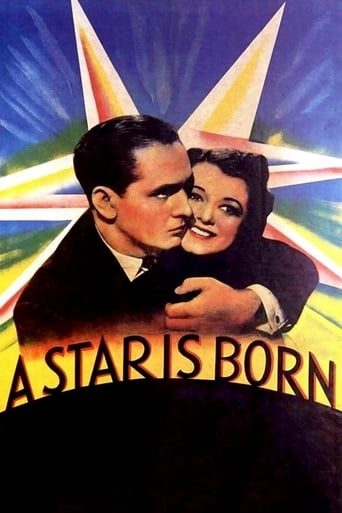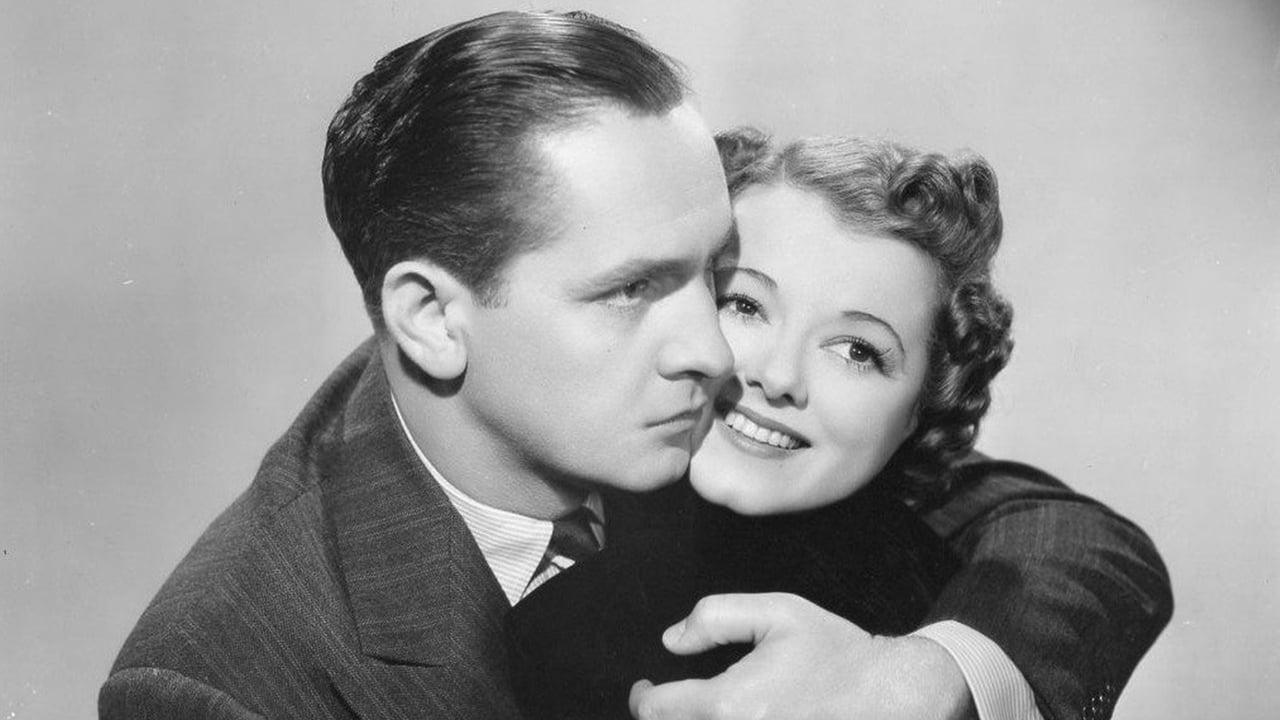mark.waltz
What price does Hollywood cost? Five years after Lowell Sherman and Constance Bennett asked that question, a new film, unofficially based upon that almost forgotten classic, came along, and created a legend which has (thus far) spawned two remakes, one even more famous than itself. Hollywood has always created dreams that turned into nightmares, not only for the young hopefuls who came out from the middle of nowhere and ended up jumping off the Hollywood sign, but for those who had made it and were branded "has-beens". Think of the fictional Norma Desmond and the Hudson Sisters. Think of the real life sign jumper Peg Entwistle, as well as dwindling stars like John Barrymore, Ramon Novarro, Montgomery Clift and others who couldn't handle the pressures that hit them for various reasons and ended up with somewhat tragic finales. Hollywood can present much beauty, but for those inside the business, it is a living hell.Esther Blodgett (Janet Gaynor) is a young hopeful from hundreds of miles from Hollywood who longs to come to "Tinseltown" and work with the legends like the fictional Norman Maine (Fredric March), an Oscar Winner slowly falling down the ranks thanks to bad publicity, bad films, and especially, way too much booze. She struggles for months even just to get the rent paid and is on the verge of quitting when a miracle happens. By chance, she meets Mr. Maine who takes a liking to her (having earlier "shusshed!" her at a concert) and presents her to movie mogul Oliver Niles (Adolph Menjou) as a potential new star. She's fresh and unique, likable and talented, perky and sober. In short, she's everything Norman Maine is not. Her rise will mark his downfall, and yet nobody knows other than a few people that it was his confidence in her which helped build her star even brighter than his own."Esther Victoria Blodgett!", press agent Lionel Stander shouts, aghast. Cutting out "Blodgett", Niles comes up with "Vicky Lester", telling everybody to shout out "Say Vicky Lester!", to which Stander cynically replies "Vicky Vicky". But a bit part isn't enough for her, and at Norman's request, she gets the female lead in his newest film which is a smash for her but a critical slap for him. His pictures continue to bomb, and hers are hits, winning her an Oscar which results in his public humiliation. By this time, Norman and Victoria are married (under their real names), the offended Stander is outraged, and the stage is set for a finale both tragic and triumphant.As much as we have been warned about Hollywood success, we haven't learned that only a few rise to the top and stay there without any type of scandal. Norman Maine, whether being Lowell Sherman's version in "What Price Hollywood" or March's or James Mason or even Kris Kristofferson, can't bear a morning shoot without a drink, and for each drink he takes marks another notch towards his downfall. Gaynor, pretty much a has-been herself after being replaced at 20th Century Fox with Shirley Temple taking over the "leading star" spot, needed a hit like "A Star is Born" and is outstanding. She's comical (imitating a variety of stars at a Hollywood party) and touching, while March is profound, even in Norman's most drunken state.Playing a film studio owner/lead producer much like Selznick or Goldwyn, Menjou is a gentle patriarchal figure, loyal to March's Norman but unable to help him get another leading role thanks to the proved failures of his past. Stander is gruff and even nasty, letting his vile towards Norman spill out so evilly that you know that even the strongest person fighting to stay sober would be tempted to break their pledge. Andy Devine is amusing as Gaynor's confidante, with May Robson authoritative as her beloved grandmother and an unbilled Clara Blandick dominating every moment of the opening scene as the movie-hating aunt.Everything about this film is outstanding, with excellent Technicolor photography and a structure which has the film open and end as if it were the visions inside the opening shot of the first page of the screenplay and its last as the film wraps up. William Wellman was a master of storytelling and utilized Dorothy Parker and Alan Campbell's screenplay to almost become a "Hollywood Bible" to indicate the ten commandments of becoming a star with "Hell" being big stars becoming has-beens for breaking these rules.
tmpj
Fredric March is one of my very favorite actors, and almost all of his movies are quality merchandise. I've not seen them all, but of all that I have seen, they all rate high in my book. This version of "A Star Is Born" is very special...it was made just a decade after pictures converted to sound. If we put the action 'right in the moment', one wonders how Norman Maine could have been washed up in less than a decade...especially if he passed all the rigorous criteria to make it into the talkie era. But we must suspend common sense for a time, in order to get into the movie. His star is fading even as we are introduced to him. Wine, women, song, and the theatre of the bombastic have all taken their toll on Norman. Everybody is back-biting him as being washed up in the business...and all seem to know it ...except Norman, that is. Meeting aspiring starlet from the Midwest, Esther Blodgett, is a bit of serendipity for both of them...though with different outcomes. He arranges a screen test, even twists the producer's arm to star her in a vehicle, which is a success. As her star rises, his continues to fade and fade until he is practically dead in the business. If he had problems when he was still a star, you can imagine what horrors he must have endured as his career is eclipsed by that of his wife, now known as Vicki Lester, who has begun to appear in her own highly acclaimed movies...even winning a coveted Academy Award (which Gaynor did in fact win some years earlier...the first actress to be awarded in her category). Humiliation is piled upon humiliation for Norman. Vicki loves him so much that she decides to put the brakes on her own career to take care of him. Norman now sees that he has lost all that he had, but cannot endure this selfless sacrifice his wife is making. If you have not already seen the movie ( are there aliens living amongst us?) or one of its several derivatives, I will stop there, and let you see the movie for yourself. The performances are sensitive, and this was probably one of Hollywood's first efforts to look at itself with some measure of honesty. The viewer connects with Esther Blodgett and her aspirations, and they want her to win. Fredric March draws out the true tragedian that Norman Maine represents, and his performance shows how pitiful one can become when one's life is shattered and dreams and ambitions disappear like snowdrifts in the springtime. Kudos go to Adolphe Menjou as producer Oliver Niles, Lionel Stander as the no-nonsense PR man ( what a contradiction in terms), who has no sympathy for Norman and contributes to Maine's ultimate decline...and to May Robson. May we all have a Granny like her to come to the rescue in our darkest hour. This version of a "Star Is Born" is best because it is the most dramatic and most honest of the numerous versions. It is raw and gritty, yet it never loses its focus or sensitivity. See the other versions of the movie if you feel you must, but do make an effort to see this one first.
edwagreen
Perhaps, it's because of the crackling of the film, but the 1937 version of "A Star is Born," doesn't hold a candle to the musical version of 17 years later.Janet Gaynor, as Esther/Vickie, doesn't hold a candle to Judy Garland's interpretation of the same role. Fredric March is wonderful, but even he was eclipsed by James Mason in the Garland version.Gaynor seemed rather too shy for the part and there is a total lack of dramatic intensity on her part which was sorely needed.The 1937 film was in black and white and this may very well have been appropriate to set the moody dramatic stage. With the musical version, you needed the necessary color to highlight not only the musical numbers, but the emotional heartbreak as well.
moonspinner55
A Hollywood love story, with the participants at cross-purposes in their respective careers, and alcohol a constant troubling factor. Though not profound--and steeped in sentiment, besides--this initial version of "A Star Is Born" makes a direct connection with the audience based on empathy for its characters, not songs or razzle-dazzle. Janet Gaynor, though a very big star in the 1930s, hasn't attained a large latter-day following for (most likely) the very reason she became an attraction initially: her giving, unselfish nature makes her a prime victim for love's heartaches, and one longs for her Esther Blodgett/Vicki Lester to mature on-screen. However, the set-up for this collapseable union doesn't allow for grown-up emotions, and Gaynor remains a noble, twinkling doormat for fading actor Fredric March. If you can get passed the tearjerker angle (which also permeated the 1954 and 1976 remakes), this look at early Hollywood is surprisingly canny and sharp, and the deep, rich Technicolor makes it a marvel to look at. Story idea lifted from 1932's "What Price Hollywood?", with a screenplay worked on by at least ten different writers (some credited, some not). **1/2 from ****


 AD
AD





